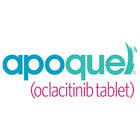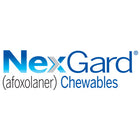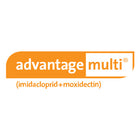Prevent Gastric Ulcers with UlcerGard
Benefits
- Demonstrated to safely and efficiently prevent equine gastric ulcer syndrome.
- Formulated to survive the acidic stomach environment, enabling proper absorption.
- Inhibits acid production at the proton pump, regardless of stimuli.
- Conveniently packaged for once-daily, simple oral paste administration.
- Unique formula supports sufficient absorption and maintains product stability.
- Ideal for use during periods of heightened stress or potential risks.
- Convenient dosage with once-a-day administration.
Directions for Use
UlcerGuard comes in a cinnamon-flavored paste for easy ingestion. Dosage during periods of stress is 1/4 tube daily for horses weighing between 600 and 1200 lbs. For horses over 1200 lbs, 1/2 tube daily is recommended.
The minimum recommended dosage is 1 mg/kg per day (0.45 mg/lb). Each syringe contains 4 individual daily doses for horses weighing 600-1200 lbs. Please refer to the following for help in determining the correct dose for your horse.
| Weight Of Horse | Doses Per Day |
|---|---|
| Less than 600 lb. | Please consult a veterinarian |
| 600 - 1,200 lb. | 1 |
| Over 1,200 lb. | 2 |
ULCERGARD can be used in horses that weigh at least 600 lbs. Safety in pregnant mares has not been determined. Not for use in humans. Keep this and all medications out of the reach of children. In case of ingestion, contact a physician.
Store at 68°F-77°F (20-25°C). Excursions between 59°F-86°F (15-30°C) are permitted.
FAQs
1. What is UlcerGard Oral Paste, and how does it work?
UlcerGard Oral Paste is a preventative treatment for equine gastric ulcer syndrome (EGUS) in horses. It contains the active ingredient omeprazole, which works by reducing the production of stomach acid. By lowering acid levels, it helps create a healthier environment in your horse’s stomach, reducing the likelihood of developing painful ulcers. It's particularly useful for performance horses or those undergoing stress from travel, training, or changes in routine.
2. How do I administer UlcerGard to my horse?
Administering UlcerGard is straightforward! The paste comes in a ready-to-use syringe. You simply need to draw the appropriate dose (usually based on your horse's weight) and place the syringe in the side of your horse’s mouth, aiming for the space between the cheek and gum. Gently push the plunger to deliver the paste, and make sure your horse swallows it. It’s best to give it on an empty stomach, ideally before they eat.
3. When should I consider using UlcerGard for my horse?
It's a good idea to consider UlcerGard if your horse shows signs of stress, such as during competition, after traveling, or when experiencing dietary changes. If your horse is known to have a history of gastric ulcers or you're observing signs like loss of appetite, changes in behavior, or weight loss, it’s wise to talk to your veterinarian about starting a course of UlcerGard to prevent these issues before they escalate.
4. Is UlcerGard safe for all horses?
Yes, UlcerGard is generally safe for most horses, including those involved in competition. However, as with any medication, there are exceptions. Pregnant or lactating mares and very young foals should be approached with caution. It's always best to consult with your veterinarian before starting any new treatment to ensure it's a good fit for your specific horse and their health needs.
Recommended for the UlcerGard Oral Paste for Horses
Product title
Vendor
$19.99 | $24.99
Product title
Vendor
$19.99 | $24.99
Product title
Vendor
$19.99 | $24.99
Product title
Vendor






















